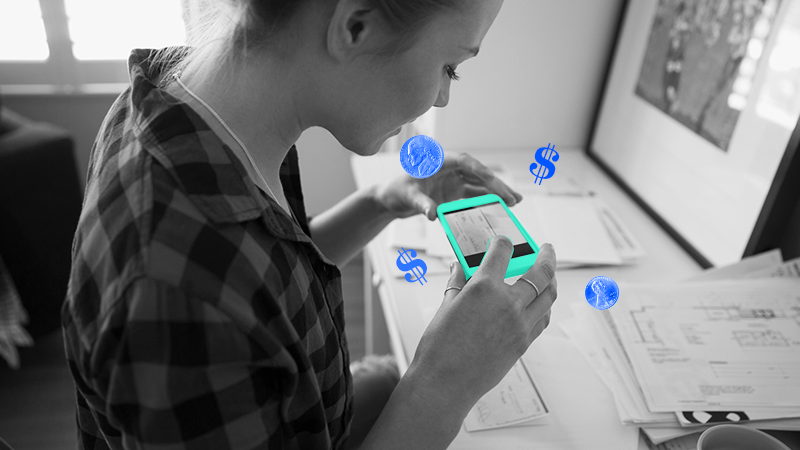How to find the best checking account




Our writers and editors used an in-house natural language generation platform to assist with portions of this article, allowing them to focus on adding information that is uniquely helpful. The article was reviewed, fact-checked and edited by our editorial staff prior to publication.
A checking account is among the most popular types of bank account in the United States. Almost everyone needs one and they make handling your finances much easier. You can easily deposit your paycheck, pay for things at stores and pay your bills using a checking account. Best of all, you don’t have to carry around a lot of cash when you want to make purchases.
Not all checking accounts are created equally, however. Banks, for example, can charge fees or offer various services that can make some accounts better than others.
Factors to consider
Whether you’re buying a product or opening a checking account, it’s always in your best interest to some comparison shopping. By analyzing multiple offers you can find a deal that best fits your needs.
When you’re looking to open a checking account, these are some of the features to compare.
Fees
Many banks charge maintenance and other fees to checking account holders. The last thing you want to do is pay for the privilege of letting the bank hold your money.
That means you should look for a checking account that doesn’t charge a monthly fee. Many banks offer low- or no-fee options, and online banks are especially known for keeping accounts fee-free.
Even accounts that charge a monthly fee typically offer ways to avoid paying it. Usually, you have to maintain a sufficient balance in the account, receive direct deposits, or make a set number of debit card or bill payment transactions.
Sometimes, if you can easily meet the requirements to avoid the fee, these accounts can make up for the inconvenience with other perks, like interest payments.
Other fees to look out for are ATM fees and overdraft fees. Your best bet is to consider accounts that don’t charge a fee to use other bank ATMs or, even better, reimburse you for the fees charged by other banks.
FDIC Insurance
One of the perks of putting money in a checking account is that it keeps your money safe. If you lose your wallet with your debit card in it, for example, you can cancel the card and you’ve only lost the cash you had in the wallet.
If you had to carry all your cash around in case you need to make a purchase, losing your wallet would result in a greater financial loss.
The Federal Deposit Insurance Corp. (FDIC) and the National Credit Union Administration (NCUA), which operates the National Credit Union Share Insurance Fund, offer insurance on checking accounts, up to $250,000 per depositor, per ownership category at each federally-insured bank or credit union. Make sure that any bank or credit union you choose is covered by insurance to make sure your money is truly safe if the financial institution fails.
Online and mobile experience
Online and mobile banking are more popular than ever. And it’s easy to understand why. It’s hard to beat the 24/7 convenience of paying your bills, making a deposit, checking your balance, moving money between accounts, or sending cash to your friends, all from your phone.
If you’re tech-savvy and do a lot of your banking online, make sure that the checking account you choose comes with a fully-featured website and mobile app.
Services like free peer-to-peer payments through Zelle are worth having and worth shopping around to find.
Other services offered
Just because you open a checking account at a bank doesn’t mean you need to use that bank for everything. However, there’s no denying the convenience of using one bank for all of your financial needs.
When comparing checking accounts, take a minute to check on the other services the bank offers. If you can have a checking account, high-yield savings account, certificate of deposit and/or money market account from the same bank, that can make it much easier to keep track of your money.
Where to open a checking account
There are lots of places that you can open a checking account, each with pros and cons.
- Local credit union:Credit unions are typically more community-focused, so you might be able to find a good deal with low fees and even a lender who will take a risk on a trusted customer with a less-than-perfect credit score. However, some charge higher-than-normal fees and many have limited ATM networks.
- Local bank: Like small credit unions, local banks can offer good deals and be easier to work with in unusual situations. But they also tend to lack large ATM networks and may charge higher fees for some services.
- Large bank:National or regional banks usually have wide networks of ATMs and are convenient because you can find a branch almost anywhere. However, they don’t tend to offer great deals when it comes to interest rates or fees.
- Online bank:Online banks tend to offer low fees, higher interest rates, and other perks. But they come with one major downside: you can’t do any in-person banking. They’re best for tech-savvy customers, but people who like banking in-person with a real-life teller will feel less comfortable working with an online bank.
Bonuses and rewards
If you’re in the market for a new checking account, it’s worth looking for checking account bonuses.
Because customers who open checking accounts tend to be loyal and keep their accounts for a long time, every new customer is worth a large amount of money to a bank. As a result, many banks offer bonuses worth hundreds of dollars to people who open a new account and meet certain requirements, such as making a minimum number of transactions each month and setting up direct deposit.
If you’re shopping around and think a certain bank is a good fit, see if it’s offering a sign-up bonus. You could get a few hundred dollars for something you were already planning on doing.
Bottom line
In the end, the things that you want from a checking account are convenience (in the form of a good online experience and easy access to your cash) and safety (in the form of FDIC insurance and low or no fees).
The best banks offer some additional perks, like interest payments and other financial services. Taking some time to shop around to find the best checking account for your needs is worth it since you’ll likely have your checking account for many years to come.
Why we ask for feedback Your feedback helps us improve our content and services. It takes less than a minute to complete.
Your responses are anonymous and will only be used for improving our website.





